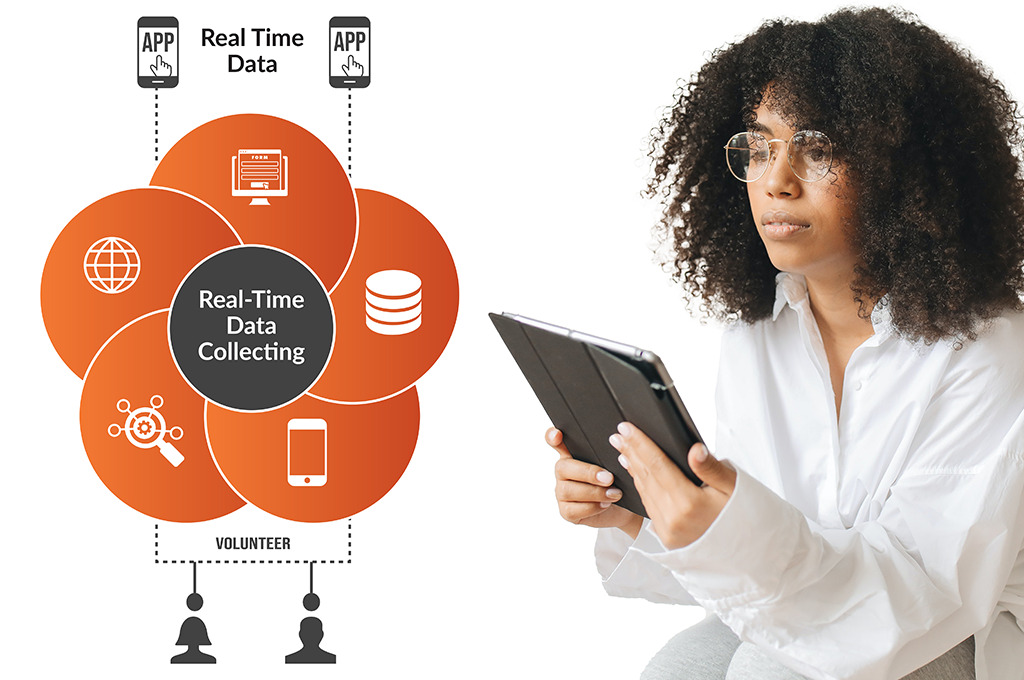In a clinical study, electronic patient-reported outcomes (ePRO) enable participants to use a tablet or smartphone to report on their health and respond to questionnaires.
Patient-reported outcomes are currently included in around 25% of clinical trials due to the emphasis on patient centricity in trial design. In 2014, almost half of clinical trials were still utilizing paper forms. However, studies indicate that patient experience and data quality may both improve from electronic patient data collection.
study design is the first step in using ePRO in a clinical study. The study team will choose the patient input to request and the most effective way to collect it—through an app, an electronic patient record, or another method. Patients have the option to install an app on their own smartphone or utilize one of the trial's supplied devices.
What are the benefits of using ePRO?
Certain metrics, such pain symptoms, are better recorded as near to real-time as feasible, while others may be efficiently gathered during site visits. This is where patient-reported outcomes (PROs) come in, and studies indicate that obtaining PROs electronically improves data quality most of the time.
Patients were asked to keep track of how often they felt the need to urinate in one study looking at a possible new therapy for a drug for hyperactive bladders. In the e-diary protocol, 91% of the micturitions (urges to urinate) that patients experienced during the day were self-initiated entries from the patients. The study's data variability was 33% lower than in a prior paper diary experiment, raising its statistical significance from 80% to 98%.
Additionally, ePRO applications are typically preferred by patients than traditional diaries. An Almac survey from 2013 found that over 75% of patients preferred completing questions online rather than on paper forms.
Benefits of Electronic Patient-Reported Outcomes (ePRO) in Clinical Trials
There are several benefits to using ePRO for clinical research companies and patients alike.
Patients will find it more convenient since they may record data at any time and from any location, which will lessen their workload and travel time.
- More precise and comprehensive data: Electronic gadgets increase uniformity and remove transcribing mistakes.
- Increased productivity for researchers: ePRO saves time and money by automating the data collecting procedure.
- Better patient adherence: Patients who get frequent messages and reminders are more likely to follow study guidelines.
Who Uses ePRO and Why?
Without a doubt, ePRO is revolutionary for all parties engaged in clinical trials. Let's examine who utilizes it and why it is important:
- Patients:
Just picture updating your health information while lounging on your couch! You may capture data on your tablet or phone whenever it's convenient for you using ePRO. Entering data electronically eliminates the concern of mistakes tampering with it. Additionally, patients get useful reminders and study information, which increases their sense of control over their involvement.
- Clinical Trial Locations:
Reduced paperwork By automating data gathering, ePRO frees up clinic employees to concentrate on what they do best—provide patient care. Moreover, it lessens mistakes and maintains consistency, which makes the process go more smoothly. accompanied with useful prompts. It is a mutually beneficial approach for both patients and healthcare providers.
- Sponsors (Pharmaceutical Companies):
Drug Development: ePRO expedites the process of developing new drugs by assisting in the effective collection of trustworthy patient data. This implies that those in need of innovative medicines could receive them sooner. Furthermore, ePRO can reduce expenses, which is always a plus.
- Contract Research Organizations (CROs):
Clinical Trials for Betterment Clinical trial management is made simple for CROs by ePRO technologies, which speed data collecting. It also maintains the data safe and ensures that everything complies with legal requirements. Pharmaceutical firms find CROs to be even more beneficial partners when they provide ePRO solutions.
In Summation
As payers and regulators emphasize the value of incorporating patient-reported outcomes in trial designs, researchers can gain by starting their studies with the primary objective of generating the best quality data in the quickest amount of time.
Patient safety is ensured by a system such as ePRO, which optimizes data collecting for all stages and indications of studies and provides a complete and precise view of any adverse events. It also guarantees accurate reporting of adverse events and lessens the workload of healthcare personnel through automated reporting and notifications. Moreover, Octalsoft ePRO has smooth EDC integration to guarantee data correctness, completeness, and confidentiality in all clinical trial contexts.
Are you curious about how Octalsoft ePRO could work for your study?


